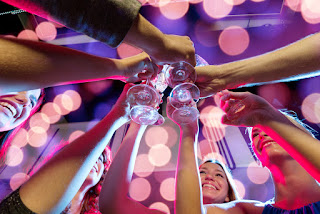 |
| Having trouble getting kids to eat their greens? You're not alone! Image: Shutterstock |
I know this to be largely true; I was one of those picky eaters as a child, as was my brother (to a much larger degree than me). I mostly liked fruit, so much so that I told my mom I wanted to become a "fruititarian." She said no. My brother liked only plain things, like hamburgers with only meat and bun or "spaghetti" with no sauce--just noodles.
Here's a sample list of what I didn't like as a child:
- Tomatoes
- Carrots (these were on-again off-again)
- Mushrooms
- Pork
- Apple juice
- Grape juice
- Milk
- Fish (of any kind)
- Corn off the cob (but on the cob was fine, apparently)
- Onions
- Chunky bits of salsa or spaghetti sauce (but the juice part was fine)
Today, the only item solidly on that list still is mushrooms. I'm still not a huge fan of apple juice, pork, or fish, but I'll eat them in moderation.
Picky eating is hardly a rare problem, according to researchers at Duke University Medical
Center. It's actually quite common among kids aged 2 to 6, but it can
have some severe consequences. Twenty percent of children in this range qualified as selective eaters, while 18% were moderately picky, and 3% were severely
selective. The differences between these categories can be hard to explain, but
at the most severe end, children were such selective eaters that they couldn’t
eat with others.
Everyone knows somebody who would only eat hot dogs or
something as a child; those kids were like severely selective. I'd say at least for a few years, my brother fit into this category (and maybe still does - today he is a vegan, but at least he's now selecting foods that give him nutritional value!).
Moderate or severely picky
eaters showed symptoms of anxiety and other mental conditions, including a
stronger predisposition towards depression and social anxiety. This is not to
mention the obvious physical health problems that can be caused by too
selective of a diet. On top of all of this, selective eating can strain the
parent-child relationship, which can potentially damage the relationship later
in life as well.
The problem is figuring out how
to intervene and get kids to eat a wider variety of foods. Kids can have a
number of reasons for being picky eaters, such as being hypersensitive to
taste, or having had a negative experience with a specific type of food that
makes them afraid to try new things. In any case, expressing this can be
difficult or even impossible for children, so many are treated as if they’re
just misbehaving, and begin to associate certain foods with punishment,.
On the plus side, being a picky eater can be a sign that something is wrong, which allows parents to seek help from their doctors before things get out of hand.
On the plus side, being a picky eater can be a sign that something is wrong, which allows parents to seek help from their doctors before things get out of hand.



